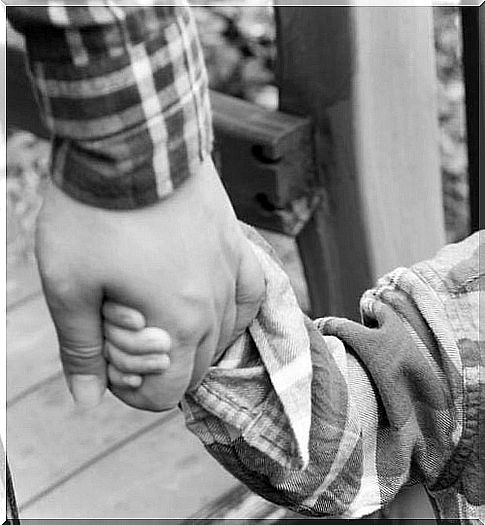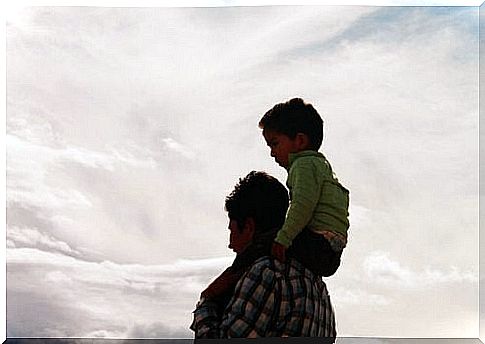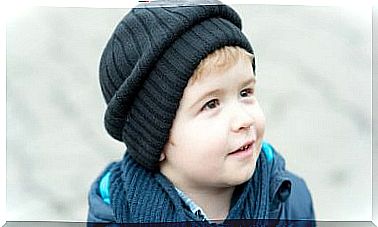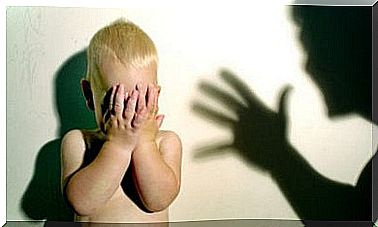5 Characteristics Of Absent Fathers

Today’s article is about some of the most common traits of absent fathers and how their absence affects the well – being of their children. The emptiness and wounds that the child gets by growing up without a father will remain in the child’s adult life. These wounds affect emotions, relationships, personality and self-esteem.
Fathers have erroneously been given a secondary role in the family and child rearing. Their role as a parent is usually based on providing financial support. However, we believe that this way of looking at fathers should be changed.
A study by the National Fatherhood Initiative shows the negative effects of absent fathers on children. Growing up without a father can affect relationships, financial factors and even physical and mental health.
The organization considers this to be a matter of general interest, costing the country hundreds of billions of dollars a year on social and educational programs.
Remember that sometimes fathers are not in the picture. Not because they do not want to, but because of other factors that prevent them from being a part of the child’s life.
For example, they may not have a healthy relationship with their ex, they may be in the military or often travel with work.
Mothers and society must give fathers a greater role in the upbringing of their children. It will promote fatherhood with responsibility and compromise.
It is important that a father begins to see himself as crucial in the child’s life. He is very crucial.

5 characteristics of absent fathers
Workaholic
They are there, but they are not really there. They typically work up to 12 hours a day and spend only a few minutes with their children.
They say goodbye to them in the morning when their children go to school. They come home from work when their children are already asleep and can neither play nor talk to their children.
This type of absent fathers is very common today. Material desires and the need for professional development put the family and their bonds at risk for their children.
Balance is the key. The quality of time spent can compensate for the amount. If you identify with these traits, try to compensate for your absence using a virtual presence.
Call, email or send messages. Be active on social media with your family. These methods will all allow you to interact with them.
In the evenings and on weekends, try to disconnect from work, your mobile phone, email and dedicate 100% of your attention to your children.
Lack of empathy
Emotional or physically absent fathers are some who do not feel empathy. They have very little emotional connection with their children and people around them. They are self-interested and maintain superficial relationships that lack depth.
This type of fathers are usually not around their children because they do not want to. Fatherhood is unknown to them and full of compromises.
They are not acting by taking everyone else into account. They do not put themselves in the shoes of others (their partner or children).
This type of person generally relinquishes responsibility as a parent. They maintain weak emotional bonds with their children. They give this task to the mother.

Emotional immaturity
This trait is related to lack of empathy. This is another reason why a father may be absent and not enthusiastic about the responsibility as a parent.
Emotionally immature people have trouble relating to this. They are afraid of commitments and create bad relationships.
Emotional immaturity can be the result of childhood or teenage trauma. They copy the role that their disinterested father played in his childhood.
Emotional immaturity involves being happy, confident as well as having healthy and balanced relationships. People who lack emotional immaturity are afraid to grow.
They live as if they were young and do not know how to express their feelings effectively.
Irresponsibility
This is a father who is not aware of their child’s development. They are not there for their children when they are feeling bad or when they are celebrating an achievement. They are simply not there.
This is the man who decides to ignore the fact that he has become a father, or even questions whether he has become a father. He is trying to escape the responsibility of raising his child.
Self-centered
The self-centered father forgets his children. He makes life plans without considering his children. He prioritizes other things over his family, like going out with friends or work.









